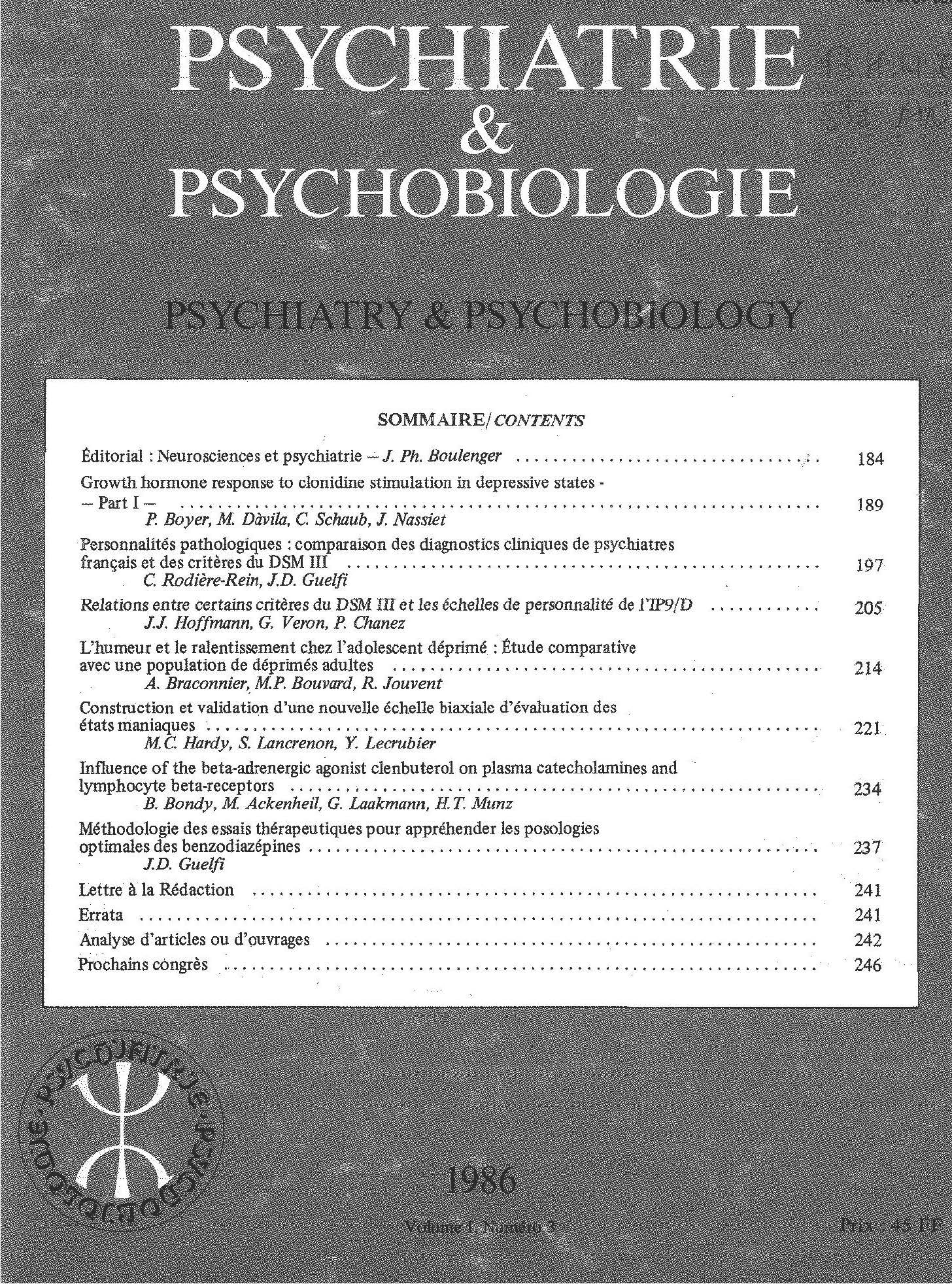Article contents
Patterns of care in Italian psychiatric services and psychosocial outcome of schizophrenic patients. A three-year prospective study
Published online by Cambridge University Press: 28 April 2020
Summary
141 patients with an ICD-9 diagnosis of schizophrenic psychosis were followed up prospectively for 3 years in 7 Italian centres, representative of the different degrees of application of the psychiatric reform law (Law 180) passed in 1978. It was agreed that each centre would treat the patients according to its routine, and that all contacts with the patients and each intervention performed would be carefully recorded in an ad hoc schedule. The baseline evaluation of psychosocial adjustment was performed by the Disability Assessment Schedule (DAS), and this assessment was then repeated every 6 months during the follow-up period. At the end of this period, the rating on the DAS section 5 was taken as a global measure of patients’ psychosocial outcome. On a stepwise logistic regression analysis, 2 variables were found to be significantly predictive of psychosocial outcome, that is the use of social and/or vocational skills training (associated with a favourable outcome) and the number of days/year of full hospitalization (associated with a poor outcome). Trieste and Arezzo were the only centres in which a significant improvement of the score on some DAS subscales (namely, “occupational role, interest” and “social withdrawal”) was detected. In the whole patient sample, the difference between the final and the baseline score on these subscales correlated significantly with the number/year of outpatient contacts and of home visits. These findings confirm the favourable impact of the community-oriented care provided in some Italian centres on the Psychosocial outcome of schizophrenic patients.
Résumé
141 patients présentant un diagnostic ICD-9 de psychose schizophrénique ont été suivis pendant une période de 3 ans dans 7 centres italiens, représentant l’application de la réforme psychiatrique (Loi 180) approuvée en 1978. Il était convenu que chaque centre traiterait les patients suivant sa propre routine, et que tous les contacts avec les patients et toute intervention effectuée seraient soigneusement enregistrés dans un schéma ad hoc. L’évaluation de départ de l’adaptation psychosociale a été effectuée par le «Disability Assessment Schedule» (Echelle d’Evaluation d’Invalidité; DAS). Cette évaluation a été ensuite répétée tous tes 6 mois pendant la période de follow-up. A la fin de cette période, l’évaluation enregistrée à la section 5 du DAS a été prise en tant que mesure globale du fonctionnement psychosocial atteint par le patient. A une analyse de régression logistique graduelle, deux variables se sont révélées significativement prédictives du résultat psychosocial, à savoir: le recours à la formation sociale et/ou la qualification professionnelle (associé à un résultat favorable) et le nombre de jours/an d’hospitalisation complete (associé à un résultat défavorable). Trieste et Arezzo sont les seuls centres où l’on a remarqué une amélioration significative des scores sur certaines sous-échelles DAS (soit,«rôle occupationnel, intérêt» et «retrait social»).Dans l’échantillon global des patients, la différence entre le score final et celui de départ sur ces sous-échelles était significativement en corrélation avec le nombre/an de contacts en consultation externe et de visites à domicile. Ces constatations confirment l’impact favourable que les soins orientés vers la communauté, offerts dans quelques centres italiens, ont sur le fonctionnement psychosocial des patients schizophrènes.
Keywords
- Type
- Original article
- Information
- Copyright
- Copyright © European Psychiatric Association 1989
References
- 2
- Cited by



Comments
No Comments have been published for this article.